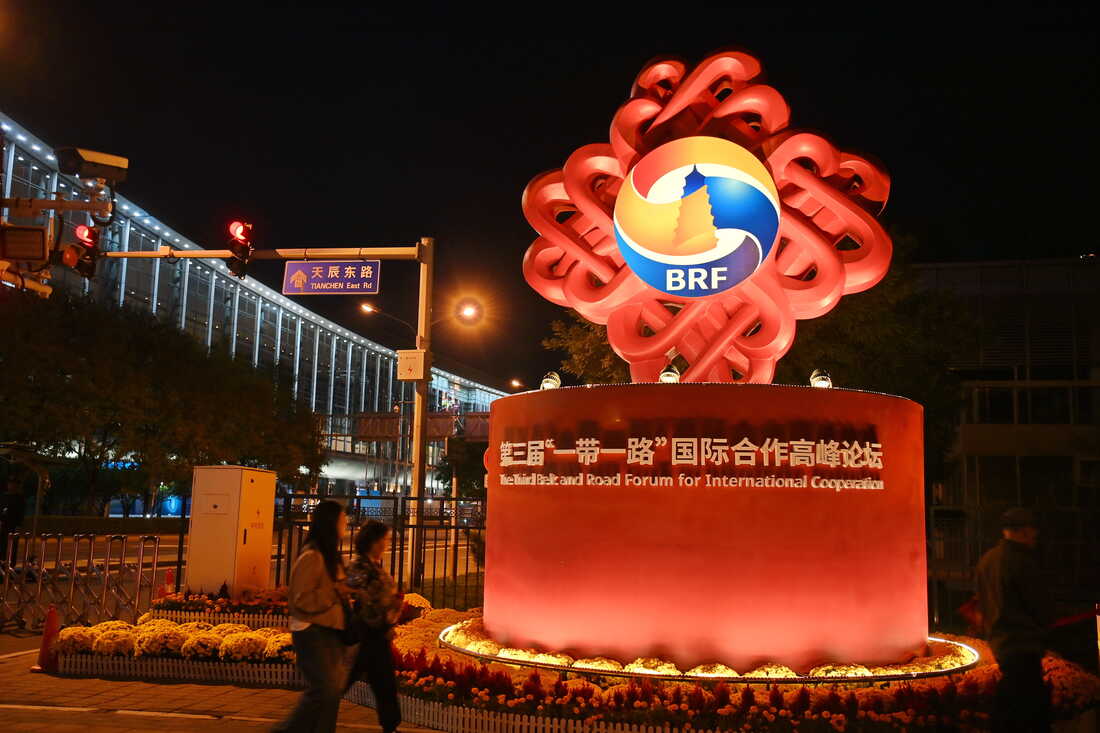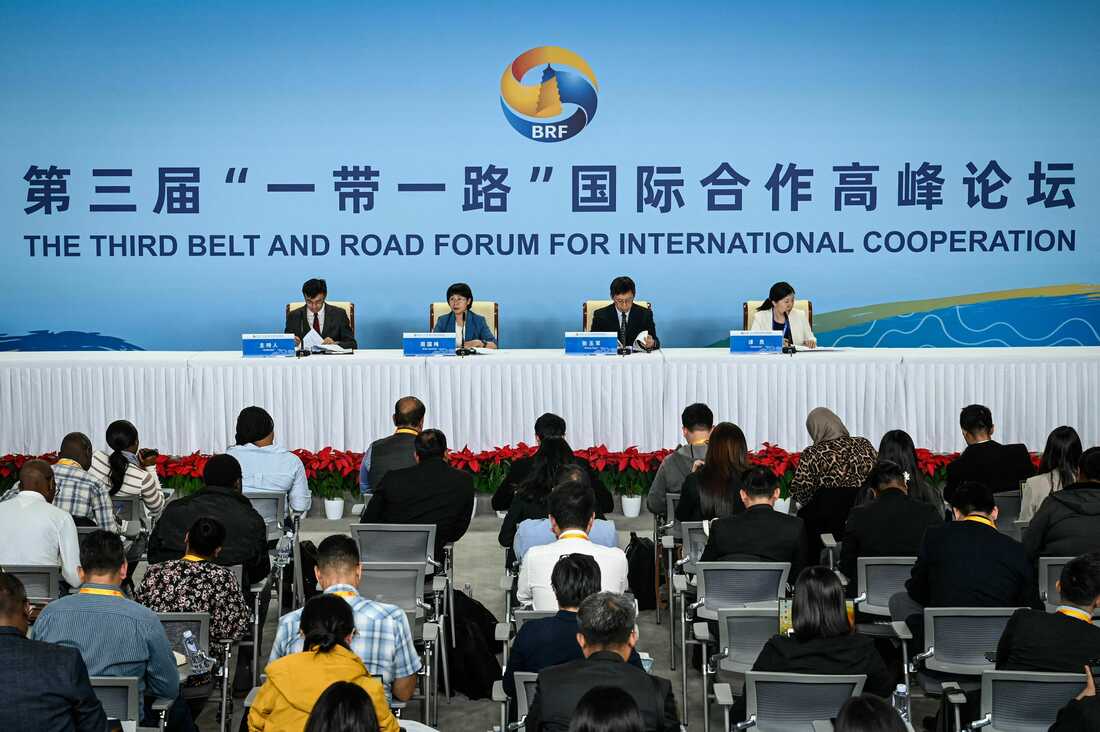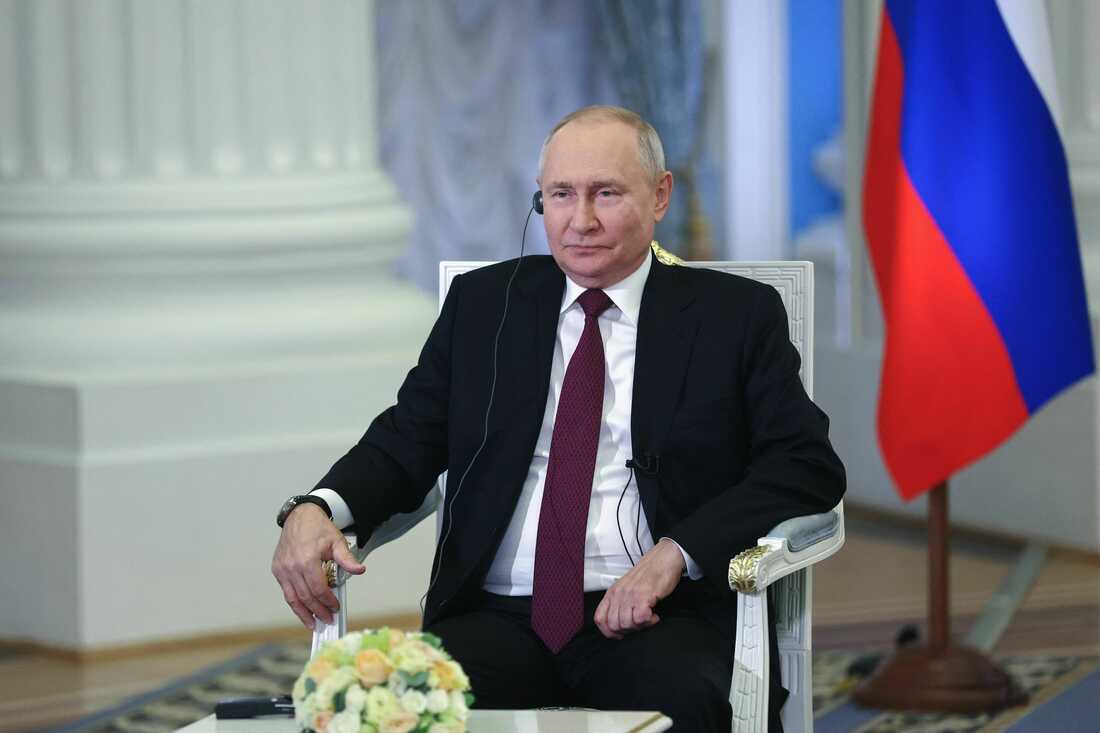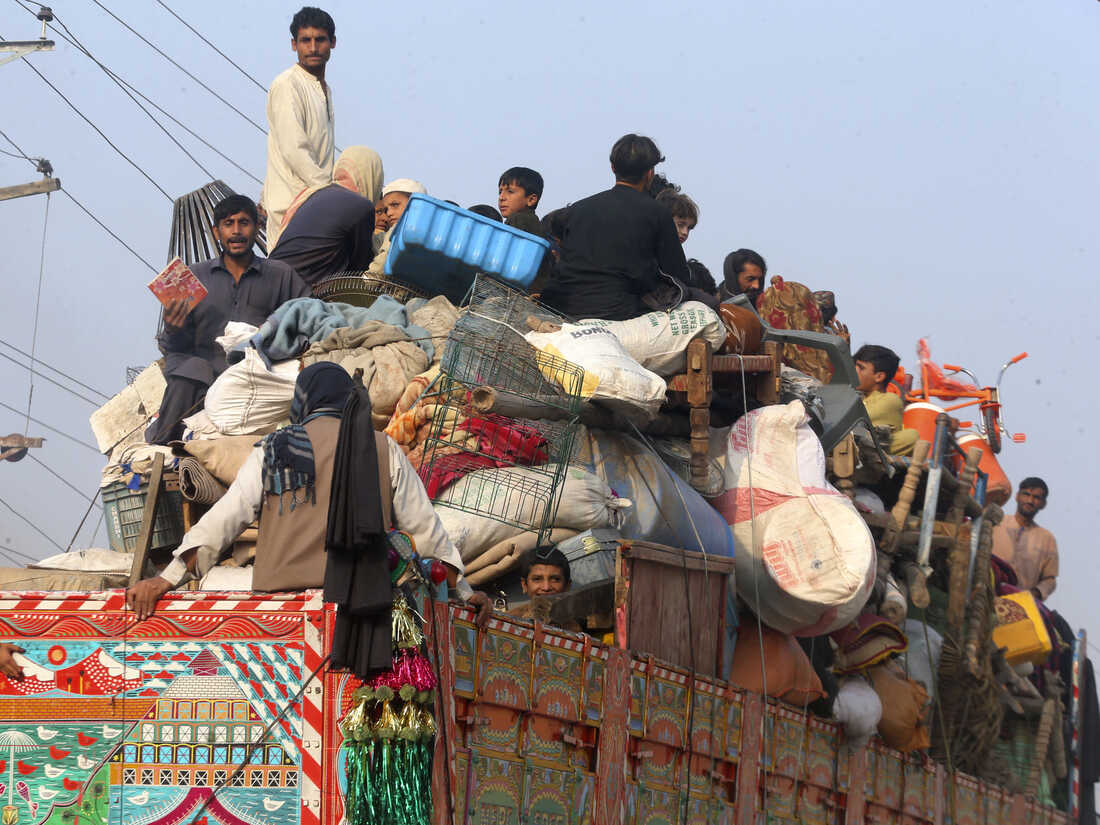As China's Belt and Road project turns 10, it's about more than just development
By John Ruwitch
People walk past a decorative installation for the third Belt and Road Forum for International Cooperation on Sunday in Beijing. VCG via Getty Images hide caption
toggle caption VCG via Getty ImagesPeople walk past a decorative installation for the third Belt and Road Forum for International Cooperation on Sunday in Beijing.
VCG via Getty ImagesBEIJING — Representatives from dozens of countries are gathering in Beijing this week to mark the 10th anniversary of China's Belt and Road Initiative (BRI), a signature foreign policy initiative for China's leader, Xi Jinping.
Beijing the BRI is a global good that helps close the infrastructure gap. But as China's relationship with the West continues to fracture, observers are scrutinizing the geopolitical implications of the initiative, and they say the list of high-profile attendees says it all.
Russian President Vladimir Putin is on hand. Hungarian Prime Minister Viktor Orban is in town, too. And Afghanistan's ruling Taliban — not formally recognized by any government — say too.
Beijing says that since its inception a decade ago, more than 150 countries have signed agreements under the auspices of the BRI. But controversies — from alleged predatory lending and to damage — have always surrounded the Chinese initiative.
Belt and Road has become a "geopolitical project"
When it was launched in 2013, an aim was to remove divisions between East and West, according to Una Aleksandra Berzina-Cerenkova, director of the China Studies Center at Riga Stradins University in Latvia.
"Belt and Road was about connecting to Europe, was about creating these links, reviving the old Silk Road," she says. "But as the years went by, it became clear that the Belt and Road — because let's not kid ourselves, of course it is also a geopolitical project, a geopolitical construct, not just an economic project — it was not being perceived with open arms in the West."
Although Chinese state-run companies have made significant investments in Europe, including in some , some countries have been resistant to the project.
Britain once showed interest, but never joined; later, the head of its secret intelligence service of Chinese debt traps.
Italy signed on to BRI in 2019, only to become disillusioned and flirt this year with a , citing a lack of economic benefits.
The United States, meanwhile, has criticized Belt and Road, with President Biden a "debt and noose agreement" China has with other countries.

Journalists attend a press conference of the Belt and Road Forum at Beijing's National Convention Center on Monday. Jade Gao / AFP via Getty Images hide caption
toggle caption Jade Gao / AFP via Getty ImagesJournalists attend a press conference of the Belt and Road Forum at Beijing's National Convention Center on Monday.
Jade Gao / AFP via Getty ImagesChina is wooing the "global South"
China has pivoted, focusing more on wooing the developing countries of the so-called "global South," including in Africa and Latin America, Berzina-Cerenkova says. And as China-U.S. relations deteriorated in recent years, Beijing's efforts intensified.
Through the Belt and Road, China has projected itself as one of the few countries putting development back on the table in international forums, and it's noticeable that Beijing's has set itself apart from democracies such as the United States, says Hong Zhang, a researcher at Harvard Kennedy School, who studies China's international development engagements.
In 2021, the European Commission — the European Union's executive branch — introduced an international investment and connectivity program called the Last year, the U.S. launched its at the Group of Seven summit. And last month, Washington provided its endorsement to the initiative.
With China's slowing economic growth, the volume of projects and the amount of money going into the Belt and Road Initiative have or stagnated. This is happening at a time when an increasing number of debt-laden countries such as Zambia are undergoing debt restructuring.
So as a large creditor, China is also under pressure. A recent study by the New York-based research firm Rhodium Group showed that, over the last three years, over of borrowing had turned sour.
" on the eve of the Ukraine invasion, in February 2022.
This pool photograph distributed by Russian state-owned agency Sputnik shows Russia's President Vladimir Putin giving an interview to China Media Group at the Kremlin in Moscow on Monday. Sergei Bobylyov/POOL/AFP via Getty Images hide caption
toggle caption Sergei Bobylyov/POOL/AFP via Getty ImagesThis pool photograph distributed by Russian state-owned agency Sputnik shows Russia's President Vladimir Putin giving an interview to China Media Group at the Kremlin in Moscow on Monday.
Sergei Bobylyov/POOL/AFP via Getty ImagesBut Wang Huiyao, the founder and president of the Center for China and Globalization think tank in Beijing, says China is the only major country left with a window open for communication with Putin, and it doesn't want to lose that.
"We don't want to close that door. So we need to save a little face for him," Wang, who also advises the Chinese government, says. Because China shares one of the world's longest borders with Russia, he says, it does not want to see the political situation in Russia destabilized.
There's a larger strategic element, too, notes Berzina-Cerenkova of Riga Stradins University. It's about global influence.
"Putin is a major endorser and a major supporter of the alternative global vision that Xi Jinping is trying to provide right now," she says. "So maybe the logic here on the Chinese side is that having Vladimir Putin stand shoulder to shoulder with Xi Jinping ... helps China to secure its position and its role in those regions that have grievances over the Western system."



